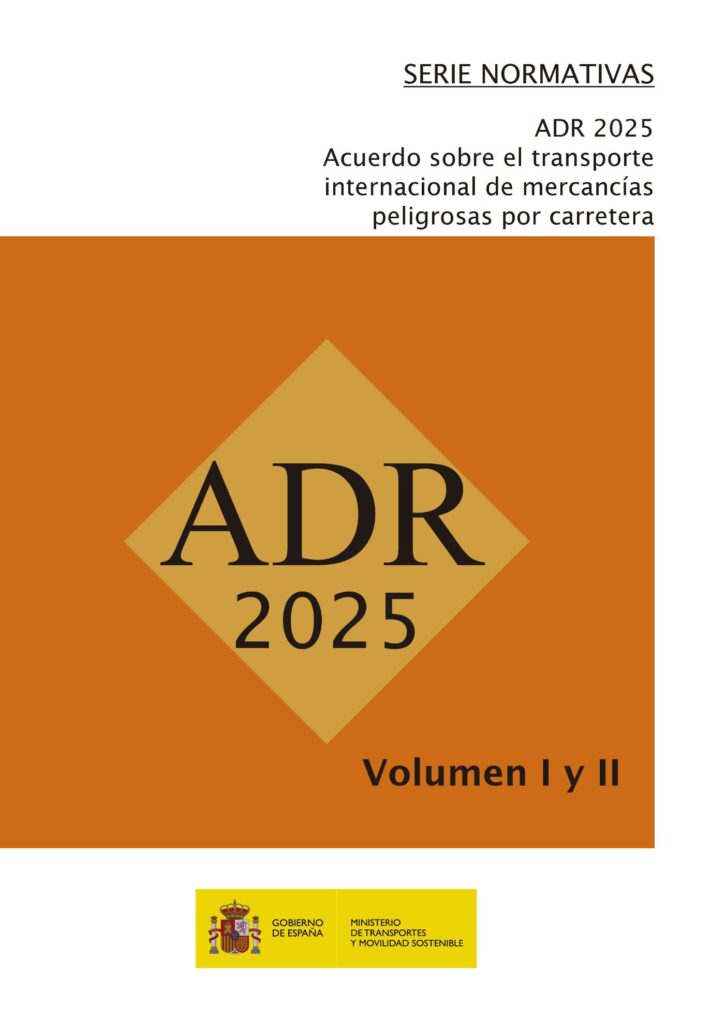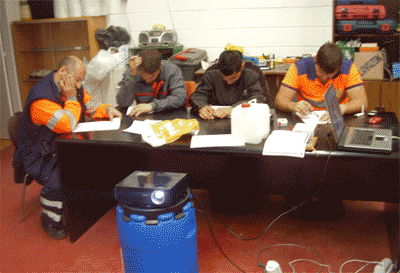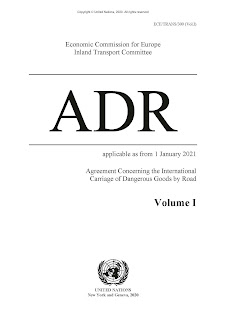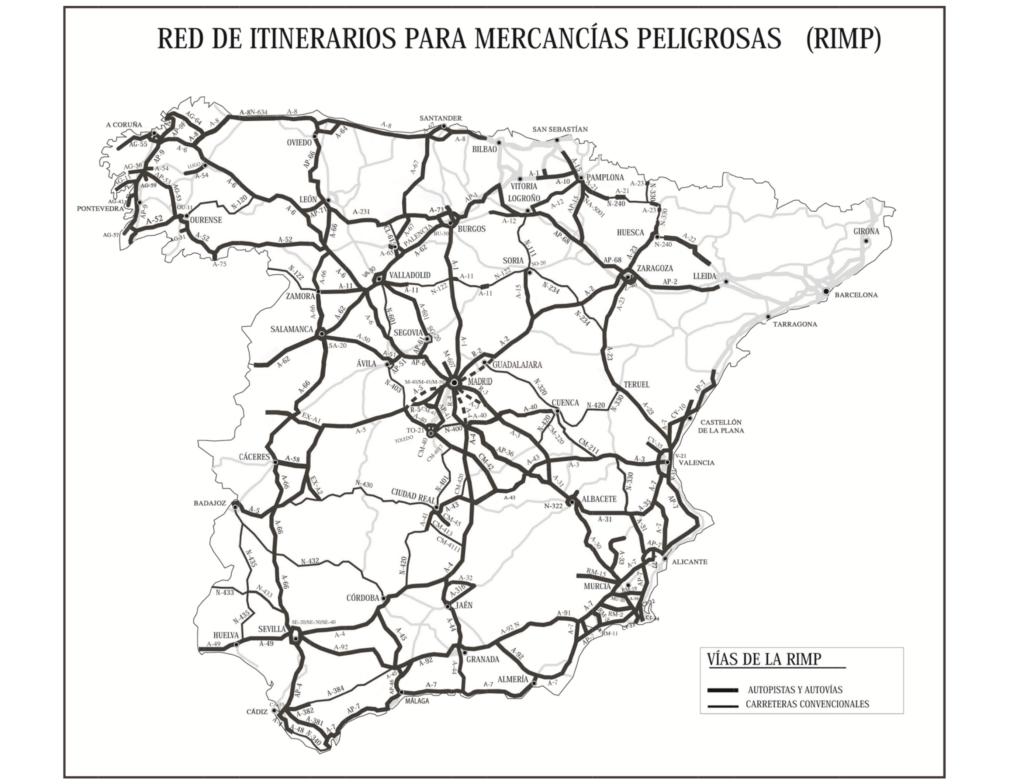Training
Training in Dangerous Goods Transport – ADR ChapterS 1.3, 8.2 & 1.8.3
ADR Training Verification by Safety Advisors (ADR 1.8.3.3)
Safety advisors are responsible for ensuring that all employees have received appropriate training and that records are properly maintained.

Comprehensive Training for Personnel Involved in Dangerous Goods Transportation
Why ADR Training is Essential?
Under ADR Chapter 1.3, all personnel involved in the transport of dangerous goods must be adequately trained according to their responsibilities. Proper training ensures compliance with regulations and enhances safety in handling, loading, and transportation operations.
Training Modules
1. General Awareness Training
Personnel must be familiar with the fundamental regulations for transporting dangerous goods, understanding the associated risks and safety requirements.
2. Function-Specific Training
Each employee must receive training directly related to their role in the transport chain. Those involved in multimodal transport should be aware of specific regulations for other transport modes.
3. Safety Training
Personnel must be trained in hazard awareness and emergency response procedures, ensuring they understand the risks of exposure during transport, loading, and unloading operations.
4. Periodic Refresher Training
To remain compliant with evolving ADR regulations, training must be regularly updated.
Legal Requirements and Compliance
Training Documentation (ADR 1.3.3)
Employers must maintain records of all training sessions, which should be available for employees and authorities upon request. These records must be verified when an employee starts a new position.
CHAPTER 1.3 ADR – TRAINING OF PEOPLE INVOLVED IN THE TRANSPORTATION OF DANGEROUS GOODS
1.3.1 Scope and applicability
Persons employed by the participants referred to in Chapter 1.4, whose duties concern the carriage of dangerous goods, shall be trained in the requirements governing the carriage of such goods appropriate to their responsibilities and duties. Employees shall be trained in accordance with 1.3.2 before assuming responsibilities and shall only perform functions, for which required training has not yet been provided, under the direct supervision of a trained person. Training requirements specific to security of dangerous goods in Chapter 1.10 shall also be addressed.
NOTE 1: With regard to the training for the safety adviser, see 1.8.3 instead of this section.
NOTE 2: With regard to the training of the vehicle crew, see Chapter 8.2 instead of this section.
NOTE 3: For training with regard to Class 7, see also 1.7.2.5.
1.3.2 Nature of the training
The training shall take the following form, appropriate to the responsibility and duties of the individual concerned.
1.3.2.1 General awareness training
Personnel shall be familiar with the general requirements of the provisions for the carriage of dangerous goods.
1.3.2.2 Function-specific training
Personnel shall be trained, commensurate directly with their duties and responsibilities in the requirements of the regulations concerning the carriage of dangerous goods.
Where the carriage of dangerous goods involves a multimodal transport operation, the personnel shall be aware of the requirements concerning other transport modes.
1.3.2.3 Safety training
Commensurate with the degree of risk of injury or exposure arising from an incident involving the carriage of dangerous goods, including loading and unloading, personnel shall be trained in the hazards and dangers presented by dangerous goods.
The training provided shall aim to make personnel aware of the safe handling and emergency response procedures.
1.3.2.4 The training shall be periodically supplemented with refresher training to take account of changes in regulations.
1.3.3 Documentation
Records of training received according to this Chapter shall be kept by the employer and made available to the employee or competent authority, upon request. Records shall be kept by the employer for a period of time established by the competent authority. Records of training shall be verified upon commencing a new employment.


Training According to Spanish Royal Decree 97/2014
Crew Member Training (Article 4)
Transport companies must ensure that:
Vehicles comply with regulatory conditions.
Crew members are informed about vehicle specifications.
Drivers obtain the special administrative authorization required by ADR.
Training for Loading/Unloading Personnel (Article 37)
Personnel involved in loading and unloading must be trained in:
Dangerous characteristics of the transported goods.
Operation of loading/unloading facilities.
Fire protection and emergency response measures.
Proper use of personal protective equipment (PPE).
1.8.3.3 ADR Training verification by the security advisor
The functions of the counselor will also include, in particular, the examination of the following practices and procedures relating to the activities involved:
(…)- the fact that the affected employees of the company have received appropriate training and that this training is indicated in their file;
TRAINING ACCORDING TO CHAPTER II OF Spanish Royal Decree 97/2014
CHAPTER II – Rules on transport operations
Article 4 Royal Decree 97/2014. Crew members.
1. Transport companies shall take the necessary measures to ensure that vehicles comply with regulatory conditions and that crew members are informed about the special characteristics of the vehicles and have the training required by current regulations.
2. In order to drive vehicles transporting dangerous goods, when required by the provisions of the ADR, a special administrative authorisation shall be required to enable this, in accordance with the provisions of articles 25 and following of the General Regulations for Drivers, approved by Royal Decree 818/2009, of May 8.
Article 37. Loading or unloading operation.
1. The personnel who carry out the loading or unloading, in accordance with the rules established in this Royal Decree, must be aware, under the responsibility of the loader-unloader, of the following aspects:
a) The dangerous characteristics of the merchandise.
b) The operation of the facilities.
c) Security and fire protection systems, and the person must be qualified for their use.
d) The personal protective equipment required at the facility and its use.
Likewise, personnel not involved in loading and unloading operations must be kept away from the area where they are being carried out and any work incompatible with the safety of the operation must be prevented in the immediate vicinity. In any case, the transport unit must be immobilized during loading and unloading.
Loading or unloading operations shall be carried out under continuous supervision by personnel acting under the responsibility of the loader/unloader, in order to verify compliance with the regulations applicable to these operations.


Call and program for the DGSA COURSE
DGSA Course – ADR-RID Certification
Course Offerings at DGSA Alcobendas
Weekday Sessions: 10 afternoon classes in April (5:00 PM – 9:00 PM). Exam tentatively on April 26, 2025.
Weekend Sessions: 10 morning classes in March & April (10:00 AM – 2:00 PM). Exam tentatively on April 26, 2025.
Distance Learning: 100 hours of study with tutoring support. Cost: €754 per student.
Certification and Exams
Upon passing the official exam, students receive the ADR-RID Safety Advisor certification, recognized in Spain and 50 other countries.
Who Should Enroll?
This course is ideal for professionals involved in the transportation of dangerous goods, including logistics managers, transport company personnel, and loading/unloading operators.
Course Highlights
Comprehensive study of ADR-RID regulations.
Practical case studies from experienced safety advisors.
Access to official manuals and supplementary materials.
Contact Us
Email: info@dgsa.es
Phone: 913341854 / WhatsApp: 605810275
Enhance your expertise in dangerous goods transport – enroll today!
All ADR-RID Specialties
In-person at DGSA Alcobendas (groups of 5 students)
- Weekday Sessions: 10 afternoon sessions in April, from 5:00 p.m. to 9:00 p.m. (Exam tentatively scheduled for April 26, 2025).
- Total Cost: €1,000 per student (VAT included).
In-person at DGSA Alcobendas (groups of 5 students)
- Weekend Sessions: 10 morning sessions in March and April 2025, from 10:00 a.m. to 2:00 p.m. (Exam tentatively scheduled for April 26, 2025).
- Total Cost: €1,000 per student (VAT included).
Distance Learning Course
- Cost: €754 per student (VAT included).
- Approximately 100 hours of study. Course materials are sent to the student, and support is provided via tutoring, internet, and phone at 605810275. Further details available at https://www.consejerosadr.es.
Certification:
Upon passing the official exam, students will be awarded the professional title valid for ADR-RID practice in Spain and 50 other countries, issued by the relevant Autonomous Community or the AESF.
Official Exams:
Exams will be conducted at locations, dates, and times as specified by the Department of Transportation’s official resolution. For more details, see the ADR and RID exam schedules:
Department of Transportation ADR-RID Exam Schedule
Railway Insurance Agency Exam Schedule
Target Audience:
This course is designed for professionals in the freight transport sector who need to obtain the ADR Safety Advisor certification.
Contact Information:
- Email: info@dgsa.es
- Phone: 913341854 / WhatsApp 605810275
Additional Information:
Companies involved in the transportation of dangerous goods, or in loading/unloading operations, must appoint a safety advisor to contribute to risk prevention, as required by Royal Decree 97/2014, depending on the mode of transport and type of goods.
Teaching Methodology:
The course offers both theoretical and practical study of dangerous goods regulations, with applications to official exams. Real-world scenarios are discussed based on the instructor’s experience as a certified advisor.
Learning Objectives:
By the end of the course, students will be proficient in identifying safety requirements within the relevant regulations. Attendees will be fully prepared to successfully pass the official ADR-RID exam.
Course Materials:
- ADR 2025 or RID 2025 book (Published by the Ministry of Transportation, ISBN 978-84-498-1096-1 ; 978-84-498-1097-8).
- ADR-RID Safety Advisor Manual (ISBN 978-84-09-54597-1).
- Additional materials: summary brochure, signage poster, 16GB USB with course resources, backpack, pencil, pen, and marker.
- Access to supplementary questionnaires via our website.
DGSA Course Program Overview:
- Introduction
- History of ADR-RID agreements
- International standards
- Spanish national regulations
- Competent Spanish authorities
- Bilateral agreements signed by Spain
- Structure of agreements
- Classification codes
- Safety advisors
- Competent transport authorities
- Responsibilities
- Professional training of DGSA
- Company obligations
- Classification criteria
- Dangerous goods lists (Tables A and B)
- Prohibited goods for ADR-RID transport
- Class 1: Explosive materials and objects
- Class 2: Gases
- Class 3: Flammable liquids
- Class 4.1: Flammable solids, self-reactive substances, polymerizing substances, and desensitized explosives
- Class 4.2: Substances liable to spontaneous combustion
- Class 4.3: Substances emitting flammable gases upon contact with water
- Class 5.1: Oxidizing substances
- Class 5.2: Organic peroxides
- Class 6.1: Toxic substances
- Class 6.2: Infectious substances
- Class 7: Radioactive materials
- Class 8: Corrosive substances
- Class 9: Miscellaneous dangerous substances
- Exemptions from ADR-RID regulations
- Marking and labeling of packages
- Vehicle signage
- Packaging construction and use
- IBC and large packaging construction
- Gas container construction and use
- Infectious and radioactive packaging requirements
- Bulk transport and containers
- ADR-RID tank construction
- Tank inspection and marking
- Tank vehicle operation
- Portable tank construction
- Vehicle construction and approval
- Equipment and fire extinguisher requirements
- Loading/unloading procedures
- Transport documentation
- Emergency procedures
- Supplementary provisions (parking and surveillance)
- Crew training requirements
- National regulations on explosives
- GHS Classification – model regulations
